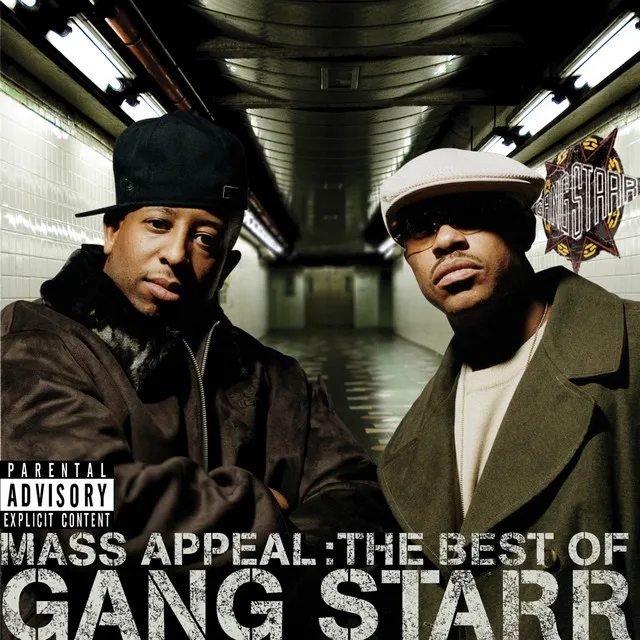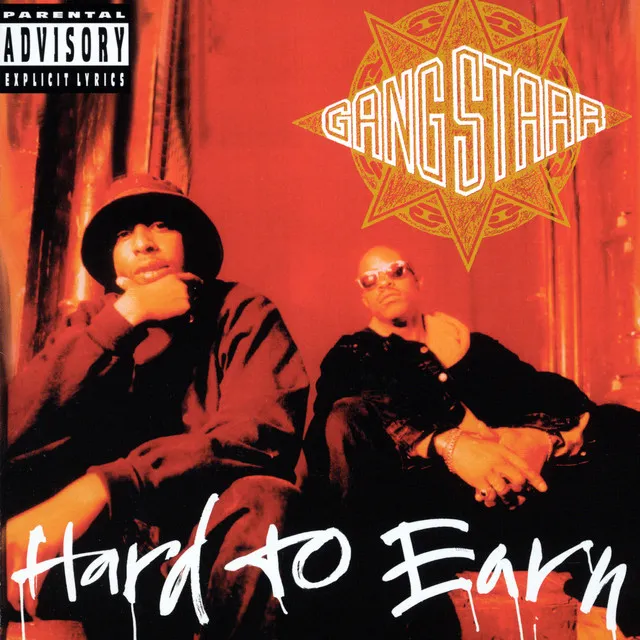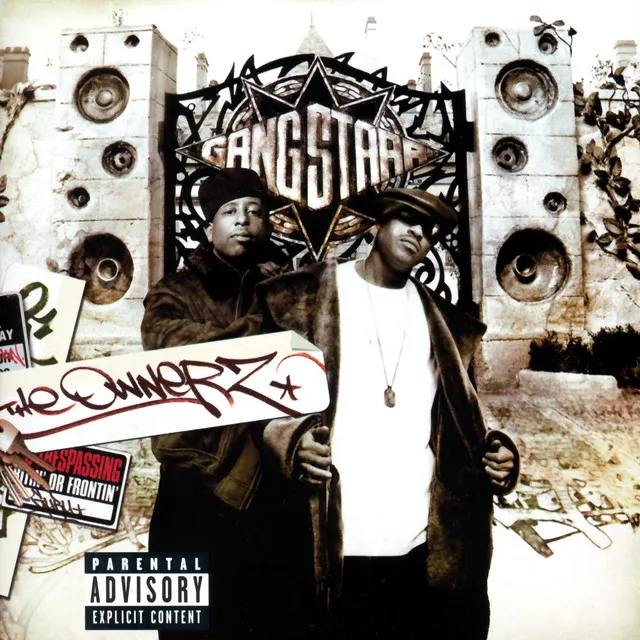One of the most influential MC and DJ duos, Gang Starr set new standards for streetwise, socially conscious East Coast rap with a pair of early-'90s touchstones, Step in the Arena (1991) and Daily Operation (1992), whose appeal has only grown over the decades. Beginning with these classic releases, listeners and critics heaped mounds of praise upon Guru and DJ Premier -- the former because of his socially conscious lyrics and no-nonsense stance, the latter because of his DJ-style beatmaking and jazzy sound. Following Step in the Arena and Daily Operation, Premier became one of New York's most in-demand producers, crafting hits for the city's finest MCs, including the Notorious B.I.G., Nas, Jay-Z, and KRS-One. Guru likewise collaborated with plenty of well-known artists -- Roy Ayers, Donald Byrd, N'Dea Davenport -- on his solo debut, Jazzmatazz, Vol. 1 (1993), and its series of follow-ups. Following Hard to Earn (1994), the duo's fourth Gang Starr collaboration overall, Guru and Premier began focusing primarily on their solo projects, reuniting infrequently for Moment of Truth (1998) and The Ownerz (2003). Guru's death in 2010 left an unfillable void in hip-hop, but Premier eventually issued new Gang Starr material in the form of One of the Best Yet (2019), featuring previously unreleased verses from Guru and appearances from the likes of Q-Tip, Jeru the Damaja, and J. Cole.
Guru (born Keith Edward Elam in Boston) and Premier (born Christopher Edward Martin in Houston) began working together in 1989. Guru founded Gang Starr a couple years earlier and had already established a working relationship with Wild Pitch Records. The partnership of Guru and Premier as Gang Starr led to a formative debut album, No More Mr. Nice Guy (1989), including the featured single "Words I Manifest" and the DJ-spotlight track "DJ Premier in Deep Concentration." Between albums, in 1990, Guru and Premier contributed "Jazz Thing" to the Mo' Better Blues soundtrack. Gang Starr subsequently moved to Chrysalis Records for their second album, Step in the Arena (1991), on which they perfected the approach of their debut -- a stark, hard-hitting jazz-rap production style, complete with Premier's masterful DJ cutting, over which Guru's battle-rap-hardened yet smoothly delivered lyrics, often thoughtful, sly, and streetsmart, take flight. Gang Starr's third album, Daily Operation (1992), furthered the duo's approach stylistically; widely considered an East Coast rap classic, it's arguably Guru and Premier's finest work, along with its predecessor.
Beginning in 1993, Guru and Premier began working separately. Guru's debut album, Jazzmatazz, Vol. 1 (1993), took the so-called jazz-rap style to a new level, featuring jazz musicians such as Lonnie Liston Smith, Branford Marsalis, Ronny Jordan, Donald Byrd, and Roy Ayers, along with guest vocalists such as N'Dea Davenport (of the Brand New Heavies) and French rapper MC Solaar. Meanwhile, Premier produced six tracks for KRS-One's solo debut, Return of the Boom Bap (1993), and in 1994 he proceeded to produce three tracks for Nas' debut, Illmatic (including "N.Y. State of Mind"); two for the Notorious B.I.G.'s debut, Ready to Die ("Unbelievable," an unreleased remix of "Machine Gun Funk"); five for the self-titled debut of Branford Marsalis' Buckshot LeFonque project; the entirety of Jeru the Damaja's debut, The Sun Rises in the East; and a handful of remixes for various artists. Amid all of this activity, Guru and Premier found time to record their fourth album, Hard to Earn (1994), which was more hardcore-fashioned -- as was the style at the time in the wake of Death Row's uprising -- than past Gang Starr albums. The album spawned the duo's biggest hit, "Mass Appeal," their first to reach the Billboard Hot 100 (peaking at number 67), and their eighth single to enter Billboard's rap chart.
Following Hard to Earn, Guru and Premier resumed their solo activity. Guru released Jazzmatazz, Vol. 2: The New Reality (1995) and a various-artists compilation, Guru Presents Ill Kid Records (1995), while Premier produced the bulk of Livin' Proof (1995), the debut of Gang Starr affiliates Group Home (a duo featured on Hard to Earn). Also in 1995, Premier produced three tracks on KRS-One, the rapper's second solo album; and two tracks on Hold It Down, the third album by Das EFX; as well as assorted remixes and one-off productions. While Guru remained more or less inactive during 1996-1997, Premier stayed busy, producing the entirety of Jeru the Damaja's Wrath of the Math (1996); five tracks on Bahamadia's Kollage (1996); six on M.O.P.'s Firing Squad (1996); three on Jay-Z's debut, Reasonable Doubt (1996); one on Nas' It Was Written (1996); two on Jay-Z's second album, In My Lifetime, Vol. 1 (1997); two on the Notorious B.I.G.'s Life After Death (1997); four on O.C.'s Jewelz (1997); two on Rakim's The 18th Letter (1997); and two on the Lady of Rage's Necessary Roughness (1997).
In 1998, after four years between albums, Gang Starr returned with Moment of Truth, their first album to chart at number one (on the R&B/Hip-Hop album chart, that is; it peaked at number six on the Billboard 200 overall, their best showing). Moment of Truth was a significant departure from past Gang Starr efforts, very much contemporary in style; for example, the album features numerous guests (Inspectah Deck, Scarface, G. Dep, K-Ci & JoJo, M.O.P.) and bore little trace of the duo's jazz-rap beginnings. The lead single, "You Know My Steez," became the second Gang Starr hit to break into the Hot 100 (peaking at number 76). A double-disc retrospective, Full Clip: A Decade of Gang Starr (1999), subsequently marked the duo's ten-year anniversary. In the years that followed, Guru and Premier continued to focus on their own work. Guru continued his Jazzmatazz series, beginning with a third volume, Streetsoul (2000); he also released solo rap albums, beginning with Baldhead Slick & da Click (2001). The next Guru release, Version 7.0: The Street Scriptures (2005), arrived on his new label, 7 Grand Records; the album featured beats by Solar, who would prove to be an important contributor on additional 7 Grand releases. The fourth volume of Jazzmatazz (2007) included the typical array of guest vocalists and instrumentalists and was issued along with the "raw" companion disc Guru's Jazzmatazz - The Timebomb: Back to the Future Mixtape. Guru 8.0: Lost and Found (2009), the rapper's next 7 Grand full-length, followed shortly thereafter. Premier continued his production activity, working with superstars such as Jay-Z, Nas, and Common, as well as underground rappers such as Royce da 5'9", Termanology, and NYG'z; he even dabbled in mainstream pop, most notably working extensively with Christina Aguilera on her double-disc album Back to Basics (2006), including the Top Ten hit "Ain't No Other Man."
As for Gang Starr, Guru and Premier did reunite during the early 2000s for The Ownerz (2003), a celebrated return to form, but the reunion proved short-lived, leaving back-catalog collections such as Mass Appeal: The Best of Gang Starr (2006) to fill the void. Guru died at age 43 on April 19, 2010 after battling cancer, suffering a heart attack, and for a time falling into a coma. Throughout the 2010s, Premier steered projects such as Get Used to Us (2010), the Bumpy Knuckles collaboration Kolexxxion, and two albums with Royce da 5'9" as PRhyme (issued in 2014 and 2018). He continued to work with veterans and up-and-comers alike, from Big Shug, Dr. Dre, and MC Eiht, to Rapsody, Westside Gunn, Conway, and Benny the Butcher. Near the end of the decade, Premier released One of the Best Yet, the first Gang Starr album in 16 years. The producer adeptly utilized previously unreleased verses from Guru and contributions from a deep roster of contemporaries and pupils, including Q-Tip, Jeru the Damaja, Group Home, Talib Kweli, and J. Cole. ~ Jason Birchmeier, Rovi







